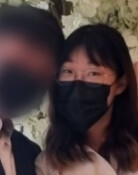Gov’t learns that U.S. dropped pick for ambassador through media
Gov’t learns that U.S. dropped pick for ambassador through media
Posted February. 02, 2018 08:36,
Updated February. 02, 2018 08:40
The South Korean Ministry of Foreign Affairs said Wednesday that the United States asked for the South Korean government’s understanding of its decision to drop Victor Cha as U.S. ambassador to South Korea. It seems that the United States is seeking South Korea’s understanding about the fact that the issue had been reported in the media before it informed South Korea of its decision. Concerns are rising over a possible crack in the trust and communication between Seoul and Washington despite the Korean government’s continuous explanation that the cooperation between the two countries is at its highest level.
The Trump administration reportedly decided to withdraw Victor Cha as U.S. ambassador to South Korea at the end of last year. It was reported that Cha told his acquaintance in early January that he got eliminated. The South Korean government, which hoped to fill the long-vacant post before the opening of the PyeongChang Winter Olympics, called for a prompt appointment of U.S. ambassador through diplomatic channels twice last month. But the United States sent a short reply saying it is “in progress,” not informing South Korea of its decision to withdraw the nomination.
Allied nations share confidential issues and come up with solutions together. There are rising concerns that the trust between the two nations is not solid enough to talk openly about issues at hand. On top of that, leaving the post vacant for 12 months is not desirable. To be sure, ambassador is not an only channel between allied nations to discuss policies. Nevertheless, leaving the post vacant for a long time can have many side effects given the ongoing nuclear crisis with North Korea.
Now we are standing at a critical juncture, where failure to exercise diplomacy through firm trust and communication will result in armed clashes on the Korean Peninsula. The U.S. State Department said Wednesday that it would prefer that the North’s military parade not occur ahead of the PyeongChang Winter Olympics. This will be a good test if Kim Jong Un can demonstrate his willingness to stop provocations and be a partner by solving problems through dialogue and negotiation.
South and North Korea agreed to field a unified team at the PyeongChang Winter Olympics and to march their athletes under one flag at the opening ceremony. But if the North stages a large-scale military parade on February 8 to show off its military power and if North Korean high-ranking officials visiting South Korea during the Olympics refuse to discuss denuclearization, the idea of a U.S. preemptive strike on North Korea will prevail in the United State.
One of the reasons that U.S. President Donald Trump dropped Victor Cha as the pick for ambassador to South Korea was due to his disagreement with the Trump administration's "bloody nose" strategy. This reaffirms the possibility of a U.S. military operation on the Korean Peninsula. The only way to stop this is to force North Korea to come to the negotiating table by increasing pressure on the North. In addition, South Korea needs to have a diplomatic power to persuade the United States that once a negotiation starts, it will actually bear fruit. To this end, what South Korea needs is trust and proven result. The Moon Jae-in administration will not be able to properly voice its opinions to the Trump administration if it lets North Korea take the lead in talks and fails to control the North’s arrogant attitude.
Headline News
- Med professors announce intention to leave hospitals starting Thursday
- Bridge honoring Sgt. Moon Jae-sik unveiled in Pennsylvania
- Chief of Staff Chung tells presidential secretaries to stay away from politics
- US FTC bans noncompete agreements
- N. Korea launches cyberattacks on S. Korea's defense companies







